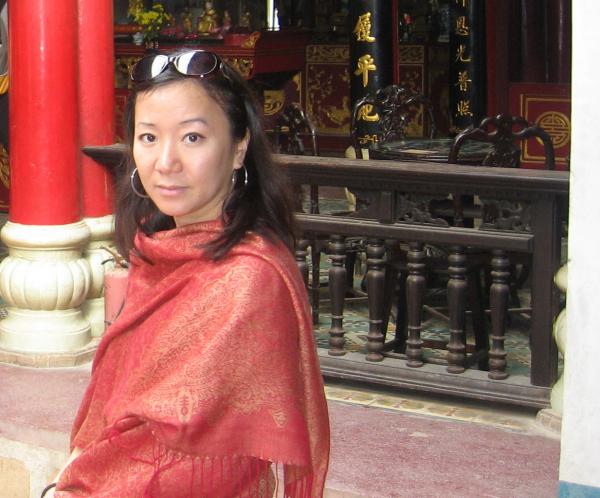Q&A with NEH Public Scholar Lien-Hang T. Nguyen

Lien-Hang T. Nguyen is the recipient of an NEH Public Scholar grant to write a book on the history of the Tet Offensive
Lien-Hang T. Nguyen

Lien-Hang T. Nguyen is the recipient of an NEH Public Scholar grant to write a book on the history of the Tet Offensive
Lien-Hang T. Nguyen
Name: Lien-Hang T. Nguyen
City and State: Lexington, Kentucky
Book Title: Tet 1968: The Battles that Changed the Vietnam War and the Global Cold War
Publication date: January 2018
Publisher: Random House
Agent: John Wright
Amount of Public Scholar grant award: $50,400 (12 months)
- Tell us the first thing you did when you learned you received an NEH Public Scholar grant. I had both of my daughters, ages 1 and 3, near me when I received the email. I picked them up and started dancing around saying “Mommy will be able to write her book! Mommy will be able to write her book!” With big grins on their faces, they joined in saying “Mommy, read us a book!”
- What’s your writing or academic background? I received my B.A. from the University of Pennsylvania and my Ph.D. in History from Yale University. I published my first book, Hanoi’s War: An International History of the War for Peace with the University of North Carolina Press in 2012. Currently, I teach at the University of Kentucky where I am able to focus on my academic scholarship as well as opinion pieces for various media outlets.
- How did you find your book project? When I was giving book talks for Hanoi’s War, audience members would often ask me about the Tet Offensive, the coordinated attacks carried out by communist forces on cities and towns across South Vietnam during the 1968 Lunar New Year. Although it was one of the seminal events of the Vietnam War since it shattered the illusion that the United States was near victory in Vietnam, there were so many aspects of the 1968 battles that remained unknown to scholars and students of that oft-studied war. With the upcoming 50th anniversary in 2018, I decided it was time for a comprehensive history of the Tet Offensive.
- What sources are you using for your research? I am using never-before-seen Vietnamese-language materials from archives and libraries located in Hanoi and Ho Chi Minh City as well as U.S. government and military documents from the National Archives and various presidential libraries. In addition to these U.S. and Vietnamese sources, I am also consulting French, British, Chinese, and Russian materials since the book also addresses the international scope of the Tet Offensive.
- Why do you want this project to have broad appeal? As the United States finds itself fighting wars overseas, the “lessons” of the 1968 Tet Offensive, and the Vietnam War more generally, are invoked by pundits, journalists, and even scholars of all stripes in ways that are woefully misinformed. I hope that my book will shed light on this important event, even if it cannot prevent people from misusing its purported “lessons.”
- What is the biggest challenge of writing a scholarly book for a general audience? It’s striking a balance between relaying all of this new information about Tet 1968 gleaned from multi-lingual sources in many different archives and telling a good story that doesn’t lose its readers in the detail.
- Do you have a model or a favorite popular scholarly book? I draw inspiration from so many of my colleagues in the historical profession and their incredible books that it’s difficult to talk about just one.
- How has the Public Scholar grant award made a difference in your project? With a very firm deadline from my publishers but a very full plate in terms of teaching, I was afraid that I wouldn’t find time to write. With no clear solution in sight, I started making wishes each time I blew a candle, picked a dandelion, or happened upon an eyelash. With the Public Scholar grant, my wish literally came true!
The NEH Public Scholar program for well-researched books in the humanities for a general audience is open for a third round of applications. Click here to learn more about this grant opportunity and here to download the .pdf with the Public Scholar application guidelines. The application deadline is February 1, 2017. Contact @email with questions.